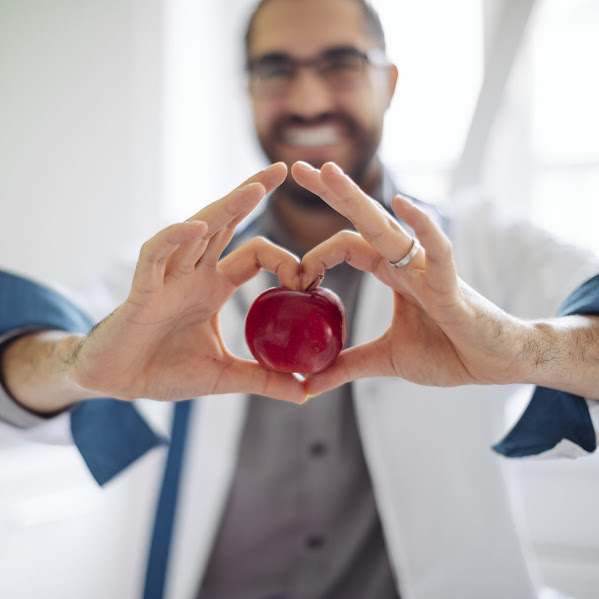Symptoms of High Cholesterol And How To Overcome Them | Cholesterol Doctors
High Cholesterol Symptoms
High cholesterol is a major risk factor for heart disease. Heart disease causes the most deaths in the US, and high cholesterol can be one of the most important factors contributing to its occurrence.
Symptoms of high cholesterol include fatigue, weakness, loss of appetite and indigestion.
Which Type of Cholesterol is Affected?
Cholesterol is a lipid, or fat-like substance, that circulates through your body. It's found in two different forms:
LDL (Low Density Lipoprotein) cholesterol – This is the bad kind of cholesterol. It can lead to atherosclerosis and heart disease if you have too much of it circulating around your blood vessels. You should aim to have less than 100 mg/dL of LDL cholesterol in your blood as part of your overall healthy diet plan. If you do have high levels of this type of derivative on board, talk with your doctor about what steps could be taken to reduce them further down the line; otherwise, simply knowing that there are plenty more ways at our disposal will help keep yourself feeling great!
1. HDL Cholesterol
HDL cholesterol is the good type of cholesterol. It transports fat from your liver to cells in your body, where it can be used as fuel. HDL helps remove excess cholesterol from the blood and carry it back to where it belongs: the liver.
HDL levels are associated with a lower risk of heart disease and stroke, although other factors like age may play a role as well.
2. LDL Cholesterol
LDL cholesterol is a type of lipoprotein that carries cholesterol through the bloodstream. It's considered to be bad because it can build up in the walls of your arteries and contribute to heart disease.
LDL stands for low-density lipoprotein, which refers to this type of fat. There are two types: large and small LDL particles (also called "bad" cholesterol). Large LDL particles are often referred to as "bad" because they can clog up arteries, leading to heart problems such as coronary artery disease or clogged arteries that may lead to stroke or heart attack someday down the road if not addressed now!
3. Triglyceride
Triglycerides are a type of fat in the blood that can increase your risk of heart disease and stroke. High triglyceride levels are usually caused by eating too much food, exercising too little or being obese.
Triglyceride levels are measured after a 12-hour fast to determine if you have excessive triglycerides in your bloodstream. This test is called fasting plasma glucose (FPG). You count how many milligrams of FPG is present in 100 milliliters (mL) of blood taken from an arm vein just before bedtime when no food has been consumed for 8 hours since last feeding at lunchtime or dinner time one day ago when there would be no new fluids added since then either because we’re drinking water instead or because we’re on some kind of medication like insulin which keeps our sugar level steady so that it doesn't spike unexpectedly during exercise sessions where there's more adrenaline pumping through our system which causes us "to use" more sugar than usual while exercising thus causing an increase in FPG levels
4. Other Compound Cholesterol
There are also other compounds in your blood. LDL cholesterol, HDL cholesterol, triglycerides and VLDL cholesterol are all different types of lipids that make up the different layers of your plasma (the liquid part of blood).
LDL stands for "low-density lipoprotein." It's bad because this type of fat can easily get stuck to arterial walls and block them from functioning properly. HDL stands for "high-density lipoprotein." This is good because it carries excess cholesterol out of your body through bile acids and excreted in feces. Triglycerides are another type of lipid found in your bloodstream; they're good because they help transport fat into cells, but when there's too much triglyceride being made by the liver or muscles (like after eating a fatty meal), it can cause inflammation throughout your body—which leads us back to high blood pressure as we'll talk about next!
Signs And Symptoms 0f High Cholesterol
In general, signs and symptoms of high cholesterol appear when you already have a severe condition that can only be solved with the right treatment to prevent further complications. High cholesterol is known as "bad" cholesterol because it contributes to heart disease and stroke.
Cholesterol is a fat-like substance in your blood that helps make hormones, vitamin D and bile acids. Your body needs some amounts of cholesterol for good health but too much can cause problems like an increased risk for heart attack or stroke.
Conclusion
High cholesterol is a serious medical condition that affects millions of people. If you are diagnosed with high cholesterol, it is important to understand what it means for your future health and how to minimize the damage it can do to your body. Don’t wait until you have a problem before taking action!
Contact High Cholesterol Specialist In Georgia, Atlanta - Cholesterol Doctors.

.jpg)


Comments
Post a Comment